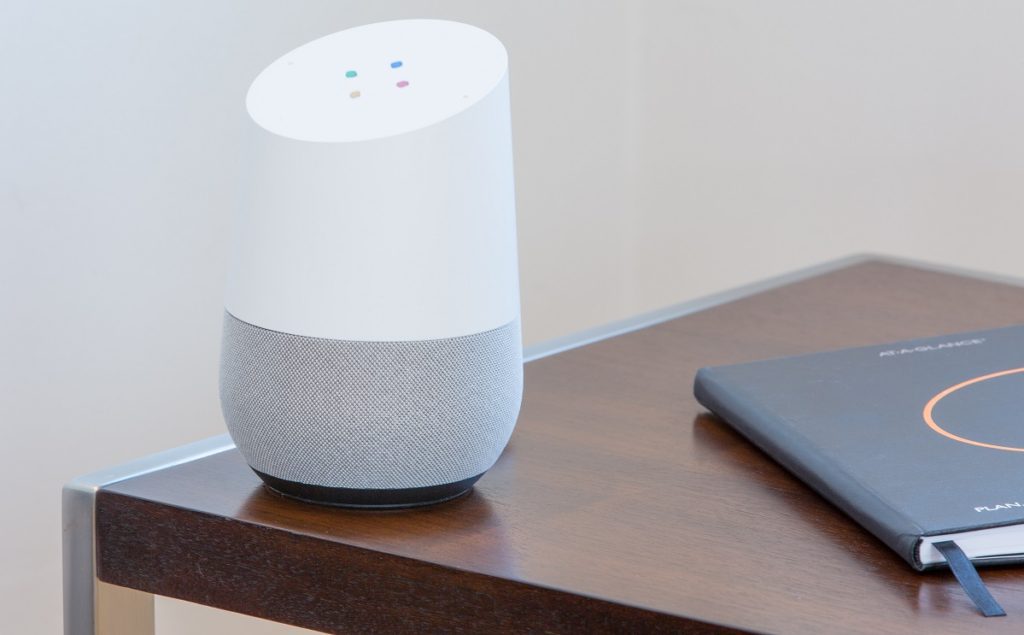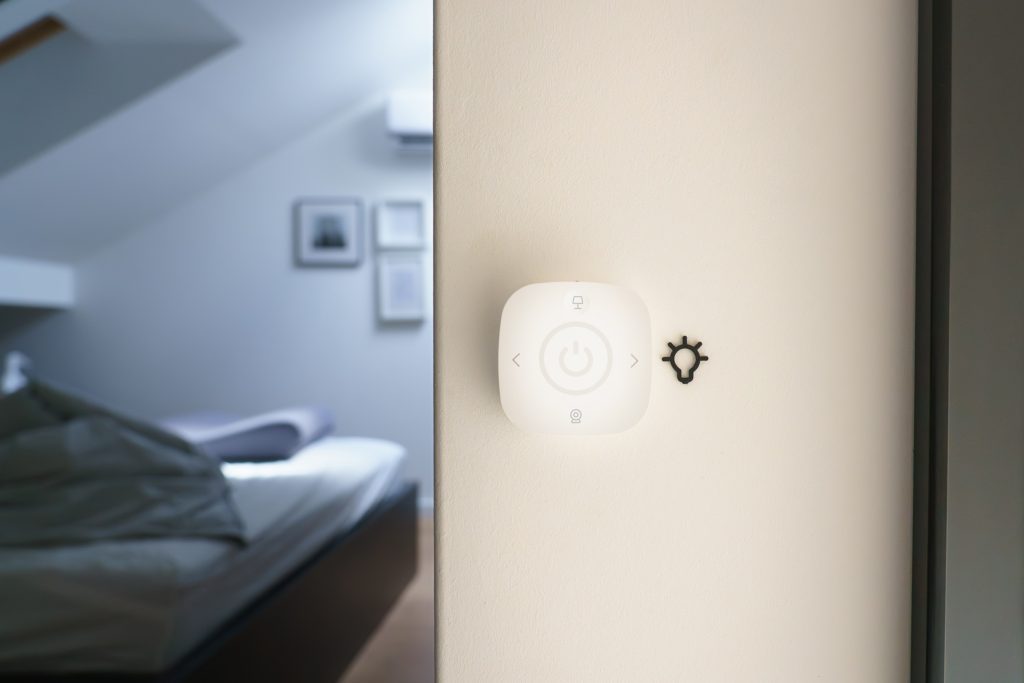We want you to know that this site is supported by our users. Some of the links you’ll find on our site are affiliate links, and if you make a purchase through those links, we may earn a commission at no extra cost to you. Thank you for your support – it’s what keeps us going!
With the rate of advancement in technology, it’s harder than ever to keep track of new tech and understand the impact it can have in your day-to-day life. In this rapidly evolving landscape, one area that stands out is the comparison of a smart home vs normal home. The home automation sector is experiencing a staggering rate of growth. With the vast amount of information available online, it can be hard to understand what’s in it for you!
There are a huge amount of differences between smart homes and normal homes at this point, as new smart home tools hit the market so frequently.
In short, a smart home is a normal home that uses a range of devices and tools to allow the owner to remotely control appliances, systems and comforts within the home – all through an internet connection. Normal homes rarely have any of these additional features and wouldn’t be considered smart homes.
In this article we’re going to look at what a smart home is, the benefits and drawbacks of making your home a smart home and everything you need to know along the way. So, let’s get into it…
Smart Home vs Normal Home – Is There a Difference?
There are certainly differences between smart homes and normal homes, however, the scale of these differences will greatly depend on the number of smart home appliances being used.
In this case, a normal home is classed as any home that does not have smart home technology implemented. This would mean no voice activated devices like Alexas, or anything similar! Although the smart home technology sector is booming, the majority of homes in the US would still be classed as normal homes.
Smart homes are homes in which technology is being used, via the internet, to increase homeowners experience. This could be as little as using an Alexa or Google Home in the morning to give you the weather forecast, or a smart thermostat to control the temperature in your property. On the other end of the spectrum, you could be using an app on your mobile to start your coffee machine and open the blinds before you’re even out of bed in the morning.
What Are the Benefits of Having A Smart Home?

Smart homes provide a long list of benefits, namely around homeowner experience and convenience. The benefits you’ll personally see vastly depends on the smart home devices you’re using in your home.
Here are the most commonly reported benefits:
- Energy Savings
The use of smart home technology can reduce your energy bills. For example, smart thermometers can monitor the temperature in your house and ensure that the heating is turned off at certain times or temperatures, resulting in savings. See our guide on the best smart thermostats for your home.
Many people assume smart technology would increase your energy bills due to more electricity demand, but this is offset by savings!
- Peace Of Mind
There are a lot of benefits related to ‘peace of mind’ when it comes to smart homes. Knowing you can be alerted of movement outside. Knowing you can lock the doors at a push of a button, from anywhere with wifi. Knowing you can control your home cameras whilst away for work.
These benefits are priceless and one of the main reasons we see folks buying smart home products.
We’ve pieced together a guide on the best home automation security systems, that might be worth a read.
- Convenience
The largest benefit is convenience. If I’m sitting in bed on a Monday morning, it would be great to press two buttons on my mobile to have the blinds open and my coffee brewing. What a way to start the morning!
These conveniences are going to be person to person dependent. However, there are so many smart home appliances these days, I’m sure you can find one that suits you perfectly.
Think about those times where you get in bed, then cannot remember if you’ve locked the doors. Imagine if that could be checked from your phone… Wouldn’t that be convenient?

- Accessibility
For elderly or disabled folks, having smart home appliances can be transformative. For example, an elderly person having a voice controlled system to lock the doors and close the blinds could be extremely useful if they struggle to undertake these tasks on their own.
- Insurance Premium Reductions
Some insurance providers are now offering a reduced yearly premium on packages, providing you have various smart home tools within the home. This can be a great incentive to pull the trigger on a purchase you’re on the fence about, if you know your insurer will be giving you a reduced rate!
Are There Drawbacks of Smart Home Tools?
Smart home tools may seem like a great investment and in most cases they are, however, there are drawbacks associated that need to be considered before embarking on your smart home journey.
- Cost
Depending on what you’re looking for, smart home tools are not cheap. If you’re looking to kit out your whole house, the price tag is going to be much larger than if you were looking to purchase ‘normal house’ items.
The caveat to this is the quality of smart home items is usually very good!
- Internet Loss
The overwhelming majority of smart home tools and appliances will be connected through the internet. Depending on where you live in the world, you may frequently lose internet connectivity.
Most smart home appliances will have a backup function in place meaning nothing is lost when the internet drops but you may lose functionality or see a reduction in functionality during these times.
However, if you have a fast and stable internet connection, you can overlook these risks.
Is There a Difference Between Home Automation & Smart Homes?

There are subtle differences between home automation systems and smart home appliances. Firstly, it’s important to understand that both serve the same goal – to provide an enhanced user experience and make certain tasks within the home easier.
Smart home appliances are connected through an internet connection and talk to a central server outside the house. For example, the Amazon Alexa speaks to Amazon servers whilst it operates.
Home automation systems operate purely within the home and are wired into a central home setup. Home automation setups don’t require the internet to operate unlike smart home tools – they just need the home to have a constant power supply.
It’s worth noting that you don’t need an electrician for a smart home, but you will for a home automation set up!
Many folks with home automation systems will still use smart home tools within their houses to further optimise user experience. You do not need to pick one or the other!
Is It Worth Turning Your Normal Home into A Smart Home?
There are a great deal of benefits of transitioning your normal home into a smart home. Of course, some of the products in the market are more ‘gimmicks’ than anything else but some products can really add value to homeowners lives and make the day to day tasks just that little bit faster.
It’s worth considering the costs of smart home appliances and potentially profiling your project from the start as it’s easy for costs to run away from you. Have an idea of exactly what you’re looking for in each room or per floor, then work from there. This will help you keep costs in order.
As a smart home owner myself, I’d highly recommend dabbling and seeing the benefits for yourself! Start small with maybe a kitchen appliance of Alexa. If you see the value, look at what else you can do in your space to really optimize what you’ve got!
There are downsides and drawbacks to consider, as with any project, but in our opinion, the pros vastly outweigh the cons.
In Summary – Smart Home vs Normal Home
In conclusion, there are a huge amount of differences between smart homes and normal homes. This gap will widen as more new technology hits the market every year!
There are a lot of pros to building out your home appliances to become a smart home and not a lot of cons, if you’ve got the money to do so.
We’ve pieced together a full guide on how to build a connected smart home, which will be worth a read if you’re considering this for your own home.



